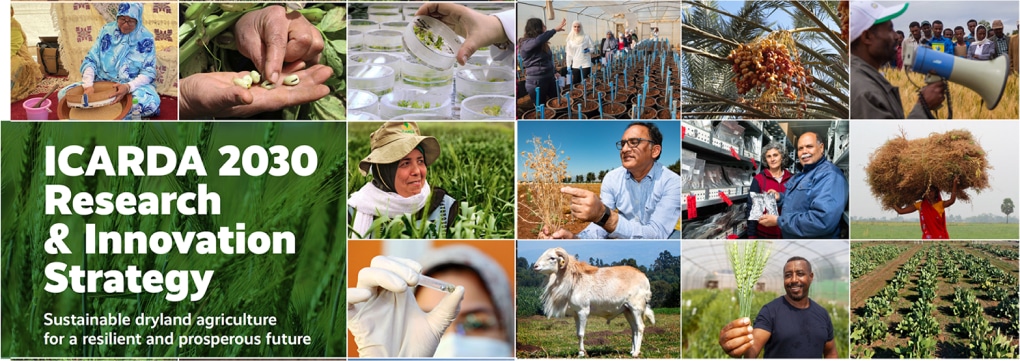
Our 2030 Research and Innovation Strategy is rooted in extensive consultations with regional stakeholders, development partners, investment banks, NGOs, public and private sector entities, and dryland communities. We collaborated throughout the year with Ministers of Agriculture who host ICARDA, sister CGIAR centers, and leaders from National Agricultural Research (NARS) programs. We also carried out a workshop in Lebanon with ICARDA’s Board of Trustees and undertook a foresight study of future global dryland scenarios to ensure our new approach is tailored to regional needs now and in the future.
ISI journal articles
published
Publications and
datasets
Stakeholder consultations to
inform ICARDA's research and innovation strategy
SRP1: Conserve and deploy plant genetic diversity in drylands for future food and corp challenges.
SRP2: Develop climate-smart crops for secure, profitable farming amid changing climates.
SRP3: Create resilient livestock and rangeland systems for livelihoods and environmental health.
SRP4: Foster resilient agrifood systems in the drylands for the benefit of communities
CCRP1: Climate Change Science (CCS)
CCRP2: Data Science and Machine Learning (DSML)
CCRP3: Socioeconomic Analysis of Innovations (SAI)
CCRP4: Gender Equality, Youth, and Social Inclusion (GEYSI)
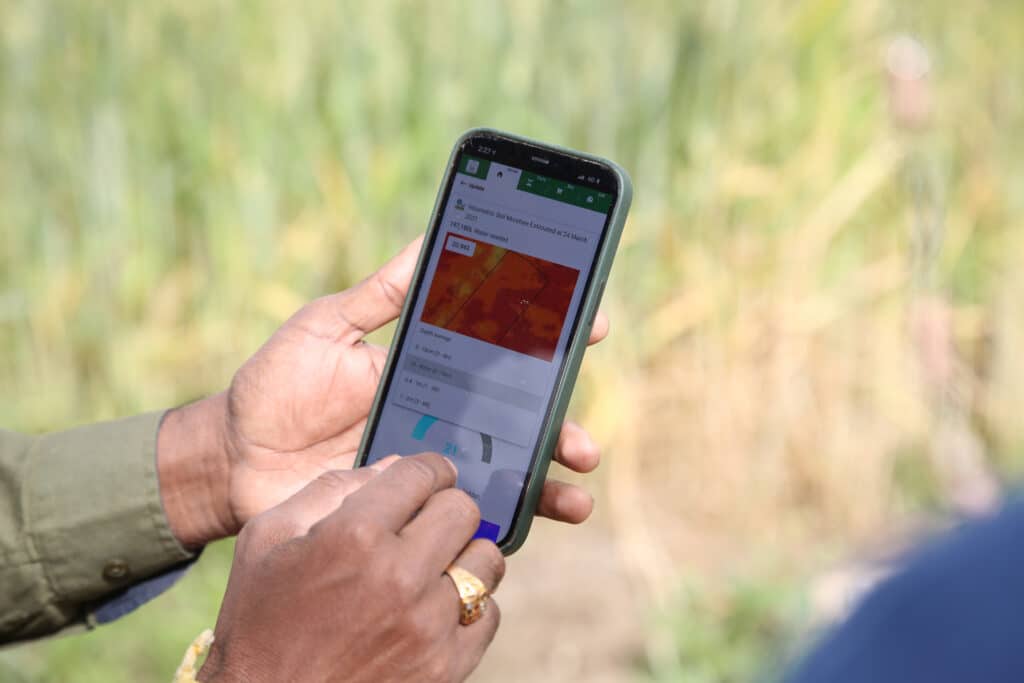
to better target our innovations to the intensifying climate change impacts and equip the farmers we serve with the knowledge and tools they need to manage and adapt to climate risks.
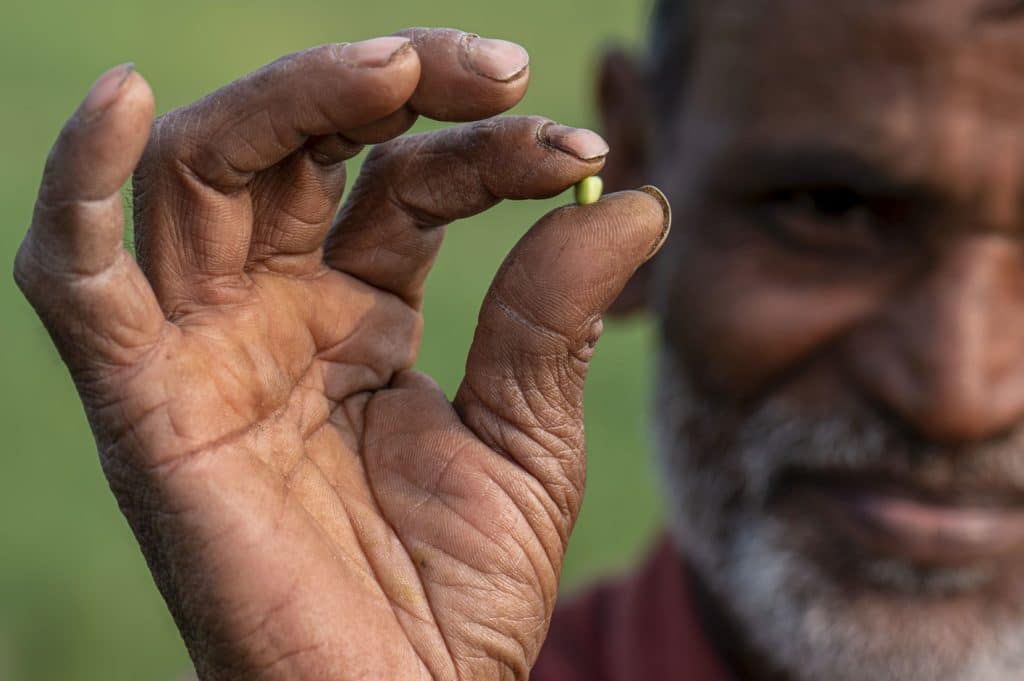
in areas such as Artificial Intelligence (AI), Data Science, Big Data Analytics in areas such as water management, climate action, genomics, phenotyping, livestock, carbon capture, and soil desalination to drive agricultural innovation. Strengthening links with the agri-food sector will ensure that dryland communities are empowered with the technical resources, knowledge, and capacity they need to manage natural resources in equitable, sustainable, and innovative ways.

will inform planning, policy, and early-warning strategies at regional, national, and local levels while empowering farmers to make precise decisions on planting, feeding, and watering their crops and livestock to optimize their productivity.
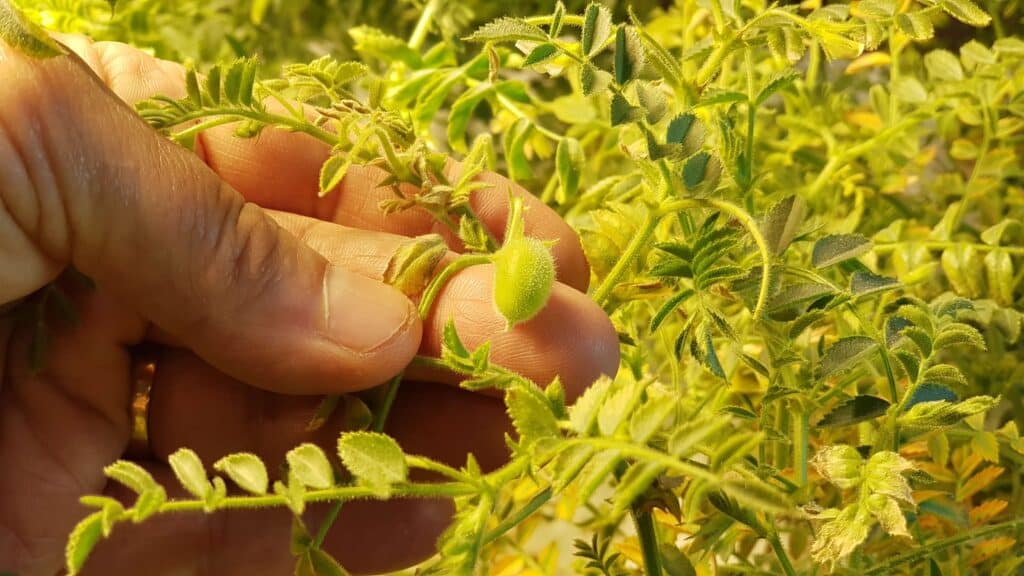
of nutritious climate-smart food and feed crops that can Withstand drought, heat, and crop pests and diseases. We also emphasize native dryland crops such as faba bean and grass pea, which are naturally resilient to climate extremes, require minimal fertilizers, and enhance soil health, particularly when deployed in mixed farming systems.
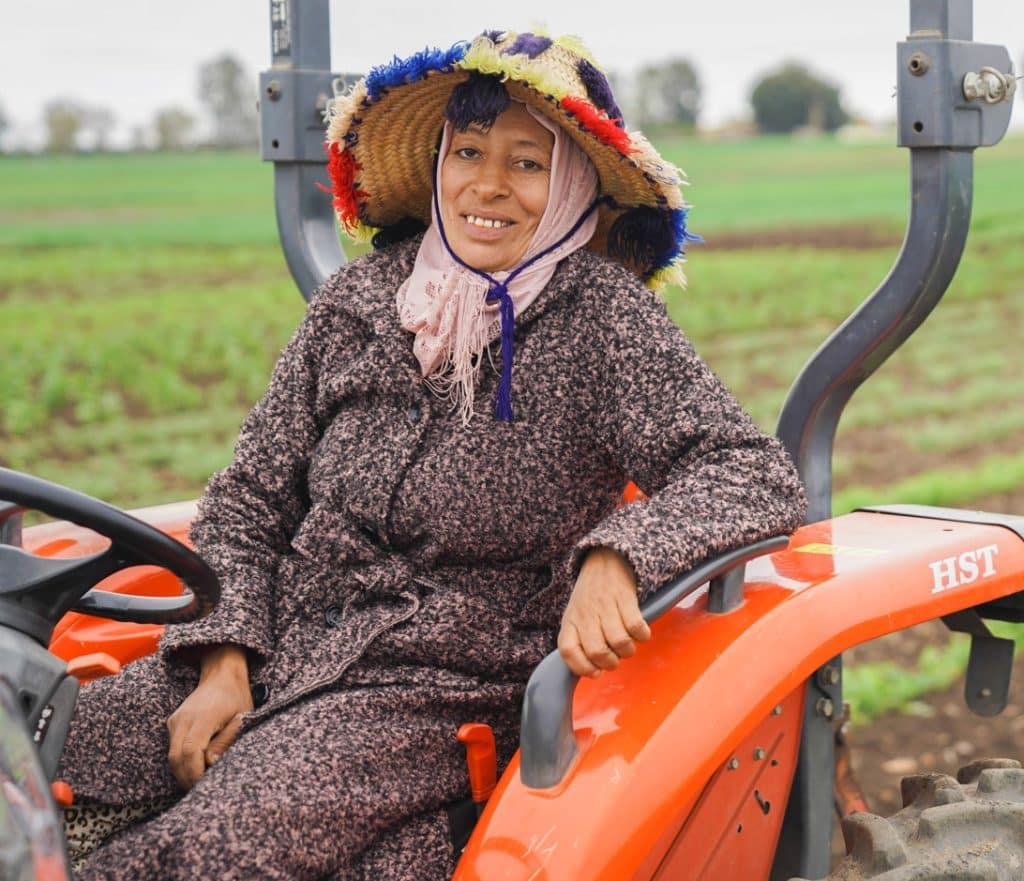
supported by investments in seed improvement and distribution for high-opportunity crops that offer job opportunities and diversified income streams, particularly for women and young people. Plus, increased advocacy efforts for supportive policies that stimulate markets and build capacity across the agricultural value chain.
remains central to our strategy to ensure communities steer their own agri-research and impact agenda. In 2023, our partnership with Tottori University in Japan deepened students’ knowledge about real-world dryland challenges and good agronomic practices, while our global students engaged in participatory research through our work with Sudan’s Agricultural Research Corporation, the University of Gezira, and FAO as part of CGIAR’s Fragility to Resilience CWANA Initiative. We also emphasized the development of early career women scientists enhancing their skills in project management while striving to remove gender bias in research.
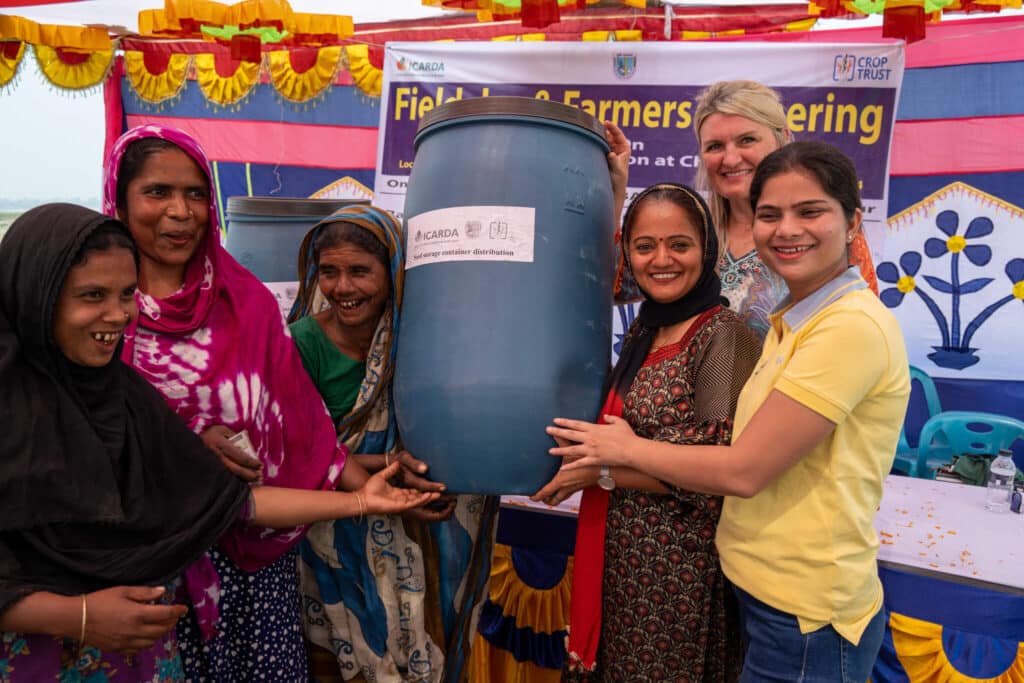
Our research is dedicated to supporting the most vulnerable people in the non-tropical drylands of low- and middle-income countries. We focus on the barriers they face and inform policymakers of our science outcomes to facilitate marginalized communities to generate their own resilient livelihoods. By engaging in participatory and inclusive research, we ensure all members of a community, including women, other marginalized groups, and young people, can voice their needs and benefit equitably from our innovations.